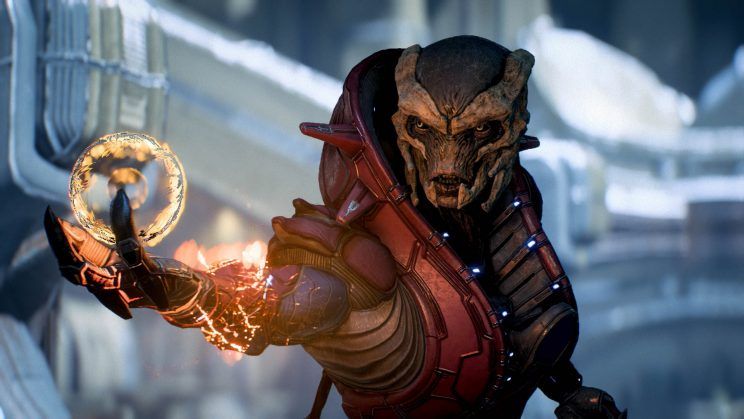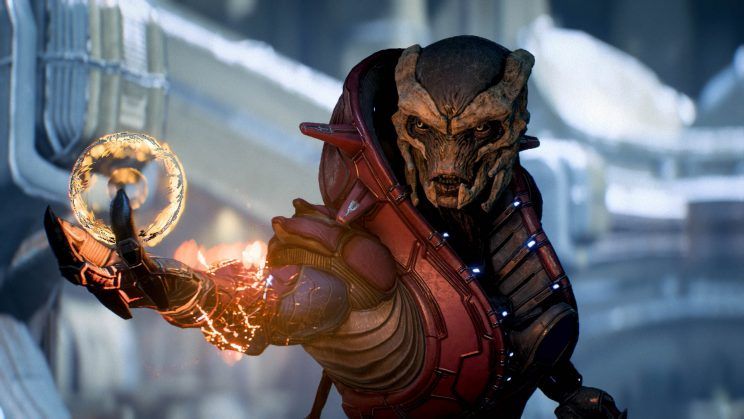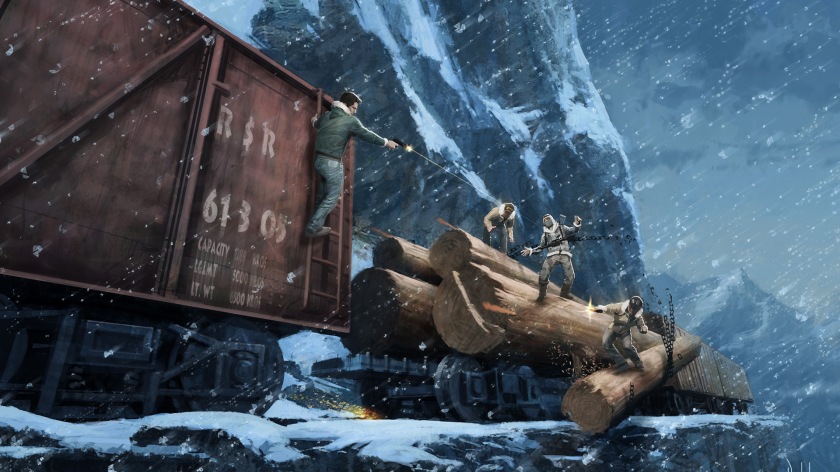Mass Effect: Andromeda is maybe mostly disappointing because of what does work well about it. The setup, of the Milky Way races seeking new worlds and having to find their place among a native population, is perfect for a series where exploration has always played a role, and opens the door for some acute social commentary. The mechanics are also fantastic overall. The RPG elements have been greatly streamlined, and the options to let your character’s skills evolve in new ways hours after character creation are much greater. Suddenly decide that you want to give biotics a try? No problem! Just spend some points there and you’ll get access to those class perks. The combat is also greatly improved from the previous entries in the series, allowing you to jump-jet around while satisfyingly throwing out ammo and biotic charges in equal measures. All of this adds up to make Mass Effect Andromeda perfectly enjoyable. But it lacks the spark that made the first trilogy, even the buggy and mechanically turgid first entry and the somewhat overburdened third entry, so special*.
Even after putting 70 hours into the game, completing nearly all of the side quests and trying to squeeze every bit of dialogue out of my squadmates, it took until the last moments of the game to really come up with a good reason why this is the case. Mass Effect 1 presented you with a plethora of choices that had dire effects on the characters, the world, and the future games. Maybe the ambition of it all made BioWare’s life harder when it came to Mass Effect 2 and sowed some regret, as the choices in Andromeda pale in comparison. There are decisions to be made, to be sure, but outside of the requisite romances (this is still a space-banging simulator at its heart), none of them seem to really affect the major characters for more than a moment. There is only one squadmate whom you can make mad enough to leave your squad, and no major deviations in the climaxes for their individual arcs. You have some choice in terms of how much power the Milky Way races cede to the native Angaran race of Andromeda, but it’s mostly window dressing; the way the world is at the end is more-or-less independent of your decisions. It all seems to be set up for inertia to make sure a sequel can follow without being too dependent on your decisions, but it also makes for a game about blazing a trail that seems to be far too much on the rails. Andromeda also leaves too many plates spinning at its end, as if a sequel (and our attention) is all but guaranteed. Even stories about beginnings need endings.
Because it wants to make a 50+ hour game that exists mostly to set up sequels, a lot of Andromeda feels half-baked. While the combat mechanics are great, the actual combat scenarios get repetitive well before the end of the game, with no unique fights to speak of; a couple of neat minibosses (Remnant Architects, Kett Ascendants) show up a few times, but there are no boss battles to speak of. But since the combat works so well, the game throws cannon fodder at you constantly in terms of scavengers, outlaws, and anti-human activists. While the armies of Kett feel fine and satisfying to plow through, the shoot-first approach to the others runs in direct opposition to the narrative, where the Tempest crew are generally seen as agents of peace (there doesn’t seem to be quite a full-Renegade option here). The side quests are nearly all disposable, even the ones that aren’t fetch quests with a reward of 100 XP and a single line of dialogue. The loyalty quests for the squadmates are a highlight though, with an overall lighter feel and some really fantastic setpieces (Liam is the worst, but his gravity-bending pirate-fighting loyalty quest deserves to be in the conversation for best Mass Effect mission). The squadmates as a whole don’t quite measure up to the best of Mass Effect, but I generally liked all the non-human ones (as per Mass Effect tradition, the human ones are the worst). Andromeda isn’t a total failure, but considering its pedigree, it’s not difficult to imagine how great it could have been.

C
Mass Effect: Andromeda (2017)
Developed by Bioware Montreal
Published by EA Games
(*) Mass Effect 2 is a perfect gem and I will hear no arguments against it.





